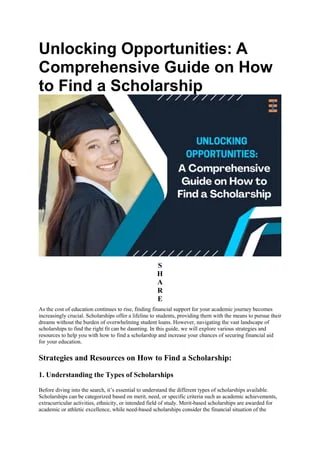Toggle light
Comments
65 Views
Report
Favorite
If current server doesn't work please try other servers below.
Server
2embed
Server
Multi
Server
Vidsrc

Score: 10 / 5 rated
A Complete Guide to Studying Abroad Everything You Need to Know
A Complete Guide to Studying Abroad: Everything You Need to Know
Studying abroad is an exciting opportunity that allows students to explore new cultures, gain global perspectives, and enhance their academic and professional prospects. With an increasing number of universities offering exchange programs, scholarships, and student visa options, studying abroad has become an attainable dream for students worldwide. However, the process of studying abroad can be overwhelming, with numerous factors to consider, including choosing the right country, securing a visa, and adjusting to life in a foreign environment.
This comprehensive guide aims to provide all the information you need to navigate the study abroad journey. From understanding the benefits of studying abroad to tips on preparing for your adventure, we’ll cover everything you need to know in order to make the most of your international academic experience.
What is Studying Abroad?
Studying abroad refers to the practice of pursuing educational programs outside your home country. It can involve participating in exchange programs, enrolling in degree courses, or attending short-term study trips. Many students choose to study abroad to experience different educational systems, improve language skills, explore new cultures, or enhance career opportunities in a globalized job market.
Types of Study Abroad Programs
There are several types of study abroad programs to choose from, depending on your academic goals and personal interests:
- Exchange Programs: Exchange programs allow students to study at a partner university abroad for a semester or academic year. Students pay tuition fees to their home institution, and credits earned abroad are transferred back to their degree program.
- Degree Programs: Some students choose to enroll in full degree programs abroad, either at the undergraduate or graduate level. This could involve studying for a Bachelor’s or Master’s degree at a foreign university.
- Short-Term Programs: Short-term study abroad programs last for a few weeks to a few months and may involve summer school, internships, or specialized courses in areas like language immersion or cultural studies.
- Internships and Research Programs: Many universities offer internship and research opportunities abroad that allow students to gain work experience while studying in a foreign country. These programs help students build their professional network and acquire valuable international experience.
Why Study Abroad?
There are many compelling reasons why students choose to study abroad. Below are some of the most significant benefits:
1. Academic Growth
Studying abroad can enhance your academic experience by exposing you to different teaching methods and educational systems. In some countries, the approach to learning is more hands-on or emphasizes practical experience, giving you a broader understanding of your field of study. You may also have access to courses, professors, or research facilities that are unavailable in your home country.
2. Cultural Immersion
Living in a foreign country provides an immersive experience that helps you understand and appreciate a new culture. You will learn a new language, try different foods, and experience local customs and traditions. Cultural immersion promotes open-mindedness, adaptability, and tolerance, all of which are valuable qualities in today’s globalized world.
3. Personal Development
Studying abroad challenges you to step outside your comfort zone, which can lead to significant personal growth. Navigating a foreign city, making new friends, and dealing with unfamiliar situations helps you develop self-reliance, problem-solving skills, and resilience. These experiences can shape you into a more independent, confident individual.
4. Career Opportunities
In a globalized job market, having international experience can make you stand out to potential employers. Studying abroad helps you build a global network of contacts and gain exposure to international business practices. Employers value candidates who can work across different cultures and navigate the complexities of a global workforce. Additionally, studying abroad often improves language skills, which can be an asset in many careers.
5. Global Networking
One of the most valuable aspects of studying abroad is the opportunity to build connections with people from all over the world. Your peers, professors, and other professionals you meet abroad can become lifelong friends, collaborators, and mentors. The relationships you form while studying abroad can open doors to international job opportunities and career prospects.
Choosing the Right Country and Program
One of the most important decisions when planning to study abroad is selecting the right country and program. Here are some factors to consider when making your decision:
1. Academic Reputation
Research universities and programs in your field of study. Look for institutions that are known for their academic excellence in your area of interest. Rankings, faculty expertise, and research facilities can be helpful indicators when evaluating programs.
2. Language of Instruction
Consider whether you are comfortable studying in a foreign language or if you prefer an English-language program. Many universities worldwide offer programs taught in English, even in non-English-speaking countries. However, if you’re planning to study in a country where a language other than English is spoken, consider whether you need to take language courses before or during your studies abroad.
3. Cost of Living
The cost of living can vary significantly between countries and cities. For instance, studying in cities like London, New York, or Tokyo can be quite expensive, while other countries might offer more affordable living options. Consider factors like accommodation, food, transportation, and entertainment when budgeting for your time abroad. You should also research scholarships, grants, and student loans that may be available to help offset costs.
4. Cultural Fit
Some countries may be a better fit for your personality and lifestyle than others. Consider cultural factors such as local customs, food, and social norms. Additionally, think about the climate, political stability, and safety of the country you are considering. If you’re looking for a specific type of experience (e.g., urban life vs. rural life), make sure the destination aligns with your expectations.
5. Post-Graduation Opportunities
Research the opportunities available to international students after graduation. Some countries, such as Canada and Australia, have post-graduation work visa options that allow you to stay and work in the country for a certain period. If gaining work experience in the country is important to you, this could influence your decision.
The Application Process for Studying Abroad
Applying to study abroad involves several key steps. Here’s a breakdown of the process:
1. Research and Planning
The first step in applying to study abroad is researching available programs, universities, and countries. Use resources like study abroad websites, university portals, and international scholarship platforms to explore your options. Make sure to plan well in advance, as the application process can take several months.
2. Meeting Eligibility Requirements
Different programs have varying eligibility requirements, including GPA, language proficiency, and prior academic qualifications. Review these requirements carefully to ensure you are eligible to apply. Some programs may also require standardized test scores, such as the TOEFL or IELTS for English language proficiency.
3. Gathering Required Documents
As part of the application process, you will need to submit several documents, including:
- Transcripts from your current institution
- Letters of recommendation from professors or employers
- A statement of purpose explaining why you want to study abroad and how it fits into your academic and career goals
- Proof of language proficiency (if applicable)
- A valid passport
4. Applying for a Student Visa
Once you’ve been accepted into a program, you will need to apply for a student visa to study in the foreign country. The visa application process varies by country, and you will typically need to provide proof of enrollment, financial stability, and health insurance coverage.
5. Scholarships and Financial Aid
Studying abroad can be costly, but there are numerous scholarships and financial aid options available to help offset the expenses. Look for university-specific scholarships, government-sponsored programs, and third-party organizations offering study abroad funding. Make sure to apply for scholarships well in advance, as the application processes can be competitive.
Adjusting to Life Abroad
Once you arrive at your study destination, you may face some initial challenges as you adjust to a new environment. Here are a few tips to help you settle in:
1. Cultural Adjustment
Cultural differences may initially feel overwhelming, but they are also part of the excitement of studying abroad. Take time to learn about local customs, traditions, and the social environment. Don’t hesitate to ask locals or fellow students for advice or help in navigating cultural norms.
2. Staying Connected
Staying in touch with family and friends back home can help ease homesickness and provide emotional support. Utilize communication tools like video calls, social media, and messaging apps to maintain regular contact.
3. Building a Support System
Building a network of friends and acquaintances is important for adapting to life abroad. Engage in social activities, join student clubs, or participate in events to meet new people. Many universities also offer support services for international students, including orientation programs, counseling services, and cultural exchange opportunities.
4. Managing Finances
Create a budget to manage your expenses while studying abroad. Open a local bank account to avoid high international transaction fees and research ways to save money on housing, food, and transportation. Avoid overspending by planning meals and activities in advance.
Conclusion
Studying abroad is an enriching experience that offers numerous academic, personal, and professional benefits. While the process can seem complex, careful planning and research can help you navigate the challenges of studying in a foreign country. By taking the time to choose the right program, gathering the necessary documents, and preparing for cultural adjustment, you can maximize the rewards of studying abroad. Whether you’re looking to expand your academic knowledge, enhance your career prospects, or simply explore the world, studying abroad is a life-changing opportunity that will broaden your horizons and leave you with unforgettable memories.
Post Views: 4
Genre: Blog
Director:
You may also like
Report Content
A Complete Guide to Studying Abroad Everything You Need to Know
Movie












